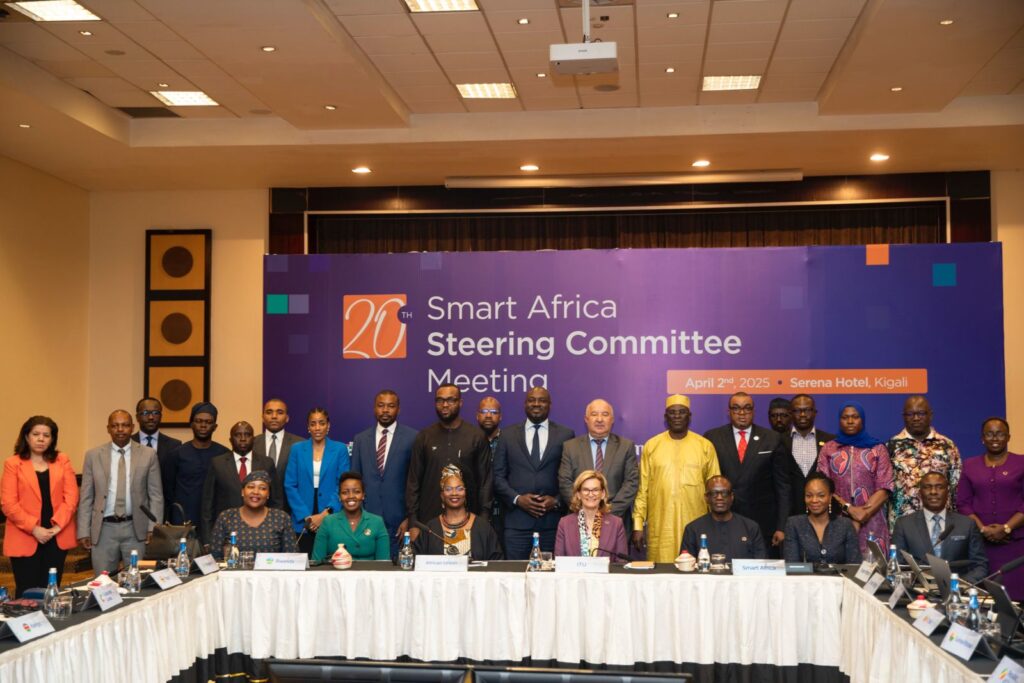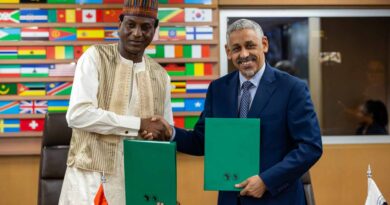Smart Africa Steering Committee Endorses Creation of Africa AI Council in Kigali
The Smart Africa Alliance has made a significant move in advancing Africa’s digital transformation by endorsing the establishment of the Africa Artificial Intelligence Council at its 20th Steering Committee Meeting held in Kigali, Rwanda.
The meeting, co-chaired by the International Telecommunication Union (ITU) Secretary and the African Union Commissioner for Energy and Infrastructure, brought together ICT Ministers, development partners, and private sector leaders to discuss strategies for Africa’s digital future.
One of the major highlights of the meeting was the endorsement of the Africa AI Council, a dedicated body that will focus on AI computing infrastructure, data development, skills training, market applications, and governance. The Smart Africa Secretariat has been tasked with consulting Member States and presenting a comprehensive operational roadmap during the Transform Africa Summit 2025, which will also take place in Kigali.
In addition to AI governance, the Steering Committee reaffirmed its commitment to affordable digital access by supporting the Africa Bulk Purchase Market Place (BPMP) Initiative. This initiative will leverage collective buying power across African nations to reduce connectivity costs for schools and health centers.
Partnering with organizations such as UNICEF (GIGA), ITU, UNECA, and Africa CDC, the initiative is expected to accelerate digital infrastructure development and bridge the digital divide across the continent.
Cybersecurity was also a key topic, with the African Network of Cybersecurity Authorities (ANCA) receiving praise for its newly developed five-year strategic plan. The Steering Committee acknowledged ANCA’s role in harmonizing cybersecurity laws and strengthening trust in Africa’s digital landscape. With the rise of cyber threats, ANCA’s work will be instrumental in ensuring a secure and resilient digital environment.
Another major resolution was the soft launch of the Africa Digital Health Leadership Network (ADHLN). This initiative aims to align digital health policies, enable cross-border collaboration, and advance the implementation of the Digital Health Blueprint.
The full launch of ADHLN, along with the Digital Health Blueprint, is scheduled for July 2025 during the Transform Africa Summit in Kigali. The initiative is expected to contribute to the realization of a Single Digital Health Market for Africa, facilitating seamless exchange of health data and services across borders.
The Steering Committee expressed gratitude to the Bill & Melinda Gates Foundation for funding high-level consultations that played a key role in shaping discussions around the Africa AI Council. This collaboration highlights the growing recognition of AI’s potential in transforming various sectors across the continent.
Speaking on the outcomes of the meeting, Smart Africa CEO Lacina Koné emphasized the importance of these resolutions in building a digitally inclusive and resilient Africa.
He stated:“These decisions reflect our collective ambition to build an inclusive and resilient digital Africa. From AI governance to digital health and cybersecurity, today’s resolutions mark a bold step toward making Africa a global digital powerhouse.”
Looking ahead, the Africa AI Council roadmap will be presented at the Transform Africa Summit 2025, and the Africa Bulk Purchase Market Place initiative will be expanded across regional economic blocs. The full launch of the Africa Digital Health Leadership Network in July 2025 will further strengthen the continent’s digital health systems.
Established in 2013, Smart Africa is a pan-African alliance dedicated to advancing the continent’s digital transformation through broadband expansion, ICT development, and regional collaboration. With 40 member states representing over 1 billion people, the alliance brings together governments, international organizations, and private sector partners to accelerate Africa’s journey toward a knowledge-based economy and a single digital market by 2030.



